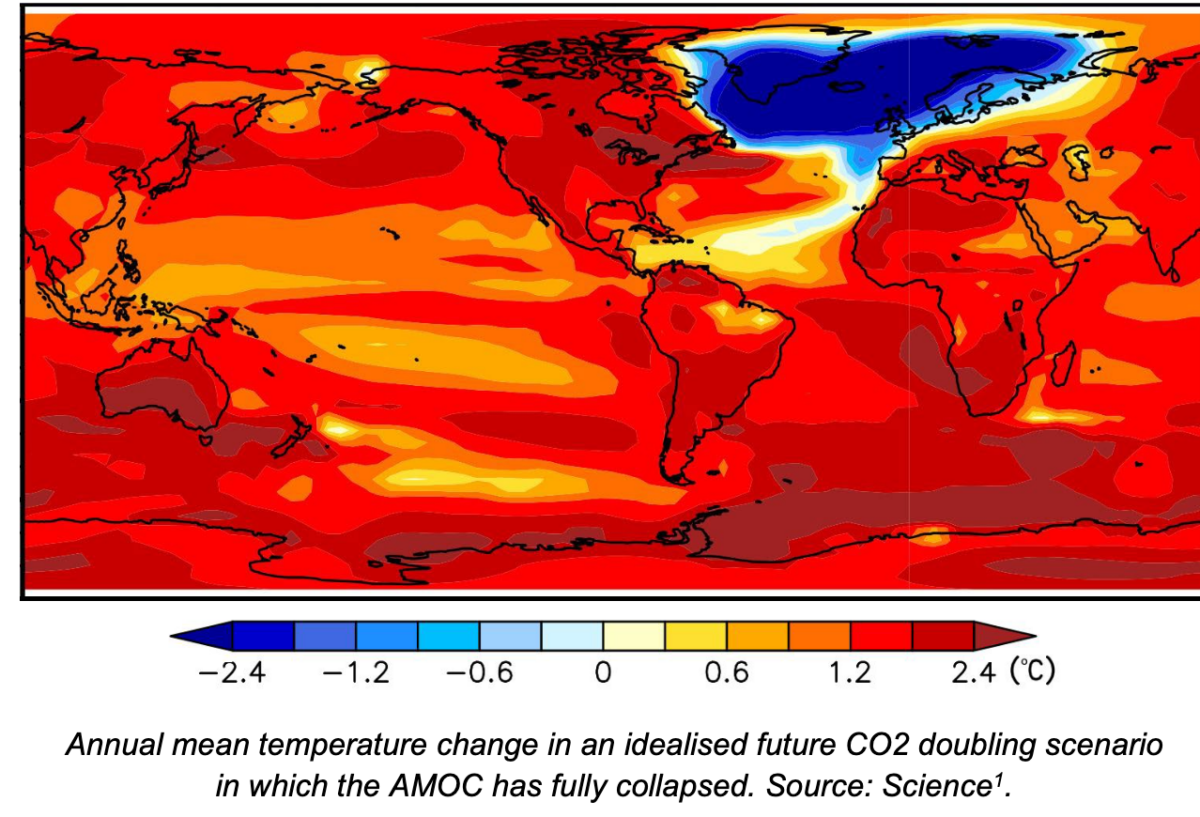
Reykjavik, October 2024:
Science increasingly confirms that the Arctic region is a “ground zero” for tipping point risks and climate regulation across the planet. In this region, the Greenland Ice Sheet, the Barents sea ice, the boreal permafrost systems, the subpolar gyre deep-water formation and the Atlantic Meridional Overturning Circulation (AMOC) are all vulnerable to major, interconnected nonlinear changes.
The AMOC, the dominant mechanism of northward heat transport in the North Atlantic, determines life conditions for all people in the Arctic region and beyond and is increasingly at risk of passing a tipping point.
Tipping point risks are real and can occur within the 1.5-2°C climate range of the Paris Agreement.. The world is currently heading well beyond this range (> 2.5°C).
Regarding the risk of tipping the ocean circulation in the Atlantic, the IPCC concludes that “there is medium confidence that the Atlantic Meridional Overturning Circulation will not collapse abruptly before 2100, but if it were to occur, it would very likely cause abrupt shifts in regional weather patterns, and large impacts on ecosystems and human activities.” Recent research since the last IPCC report does suggest that the IPCC has underestimated this risk and that the passing of this tipping point is a serious possibility already in the next few decades.
Despite significant research into the possibility and mechanisms of a collapse, the probability of such an occurrence remains highly uncertain. The purpose of this letter is to draw attention to the fact that only “medium confidence” in the AMOC not collapsing is not reassuring, and clearly leaves open the possibility of an AMOC collapse during this century. And there is even greater likelihood that a collapse is triggered this century but only fully plays out in the next.
Given the increasing evidence for a higher risk of an AMOC collapse, we believe it is of critical importance that Arctic tipping point risks, in particular the AMOC risk, are taken seriously in governance and policy. Even with a medium likelihood of occurrence, given that the outcome would be catastrophic and impacting the entire world for centuries to come, we believe more needs to be done to minimize this risk.”
The impacts particularly on Nordic Countries would likely be catastrophic, including major cooling in the region while surrounding regions warm. This would be an enlargement and deepening of the ‘cold blob’ that already has developed over the subpolar Atlantic Ocean, and likely lead to unprecedented extreme weather. While the impacts on weather patterns,
ecosystems and human activities warrant further study, they would potentially threaten the viability of agriculture in northwestern Europe.
Many further impacts are likely to be felt globally, including a shift in tropical rainfall belts, reduced oceanic carbon dioxide uptake (and thus faster atmospheric increase) as well as major additional sea-level rise particularly along the American Atlantic coast, and an upheaval of marine ecosystems and fisheries.
Recognizing that adaptation to such a severe climate catastrophe is not a viable option, we urge the Council of Nordic Ministers to (a) initiate an assessment of this significant risk to the Nordic countries and (b) take steps to minimize this risk as much as possible. This could involve leveraging the strong international standing of the Nordic countries to increase pressure for greater urgency and priority in the global effort to reduce emissions as quickly as possible, in order to stay close to the 1.5 °C target set by the Paris Agreement.